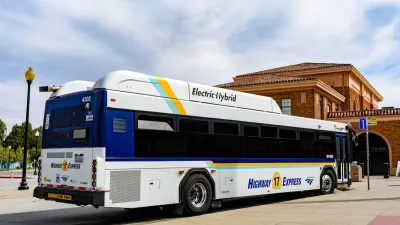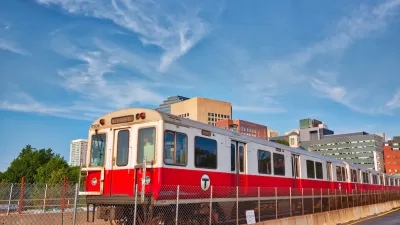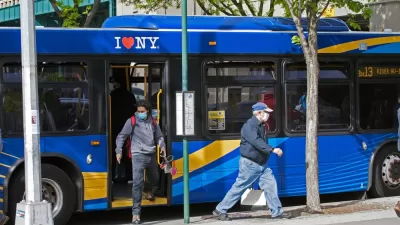The average cost of commuting in the United States rose by 35 percent since last year, according to a new report.

Writing in Axios, Jennifer A. Kingson reports on the rising cost of the average American commute, which is up by $757, or 35 percent, from last year. “The sheer expense of getting to work is not just hurting our bank accounts — it's contributing to wrangling between workers and employers over returning to the office,” Kingson writes.
“It's also leading to debate over whether companies should pick up the tab.” A new Philadelphia law will, if passed, require companies with more than 50 employees to provide commuter benefits.
Kingson notes that the cost of gas is, naturally, one of the main drivers of more expensive commutes. “U.S. commuters will spend an average of $657 on gas this year — up 58% from last year, according to a calculation by a website called Overheard on Conference Calls.” Nationwide, New York City commuters face the highest costs, at $4,040—up 47 percent from last year. Two other New York cities, Rochester and Albany, have the next most expensive commutes, followed by Jacksonville and Orlando.
The silver lining: this could be good for transit. While ridership is still making a sluggish return, more agencies are looking at ways to reduce fares and improve service, while city leaders may be more amenable to investing in transit projects.
FULL STORY: Your commute is hundreds of dollars more expensive this year

Planetizen Federal Action Tracker
A weekly monitor of how Trump’s orders and actions are impacting planners and planning in America.

San Francisco's School District Spent $105M To Build Affordable Housing for Teachers — And That's Just the Beginning
SFUSD joins a growing list of school districts using their land holdings to address housing affordability challenges faced by their own employees.

The Tiny, Adorable $7,000 Car Turning Japan Onto EVs
The single seat Mibot charges from a regular plug as quickly as an iPad, and is about half the price of an average EV.

Seattle's Plan for Adopting Driverless Cars
Equity, safety, accessibility and affordability are front of mind as the city prepares for robotaxis and other autonomous vehicles.

As Trump Phases Out FEMA, Is It Time to Flee the Floodplains?
With less federal funding available for disaster relief efforts, the need to relocate at-risk communities is more urgent than ever.

With Protected Lanes, 460% More People Commute by Bike
For those needing more ammo, more data proving what we already knew is here.
Urban Design for Planners 1: Software Tools
This six-course series explores essential urban design concepts using open source software and equips planners with the tools they need to participate fully in the urban design process.
Planning for Universal Design
Learn the tools for implementing Universal Design in planning regulations.
Smith Gee Studio
City of Charlotte
City of Camden Redevelopment Agency
City of Astoria
Transportation Research & Education Center (TREC) at Portland State University
US High Speed Rail Association
City of Camden Redevelopment Agency
Municipality of Princeton (NJ)





























